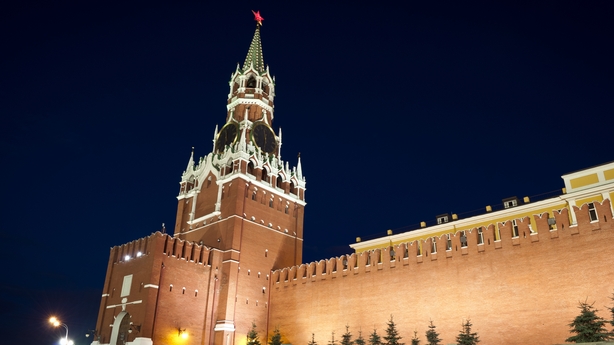The world's biggest shipping lines MSC and Maersk today suspended container shipping to and from Russia.
The move will deepen the country's isolation as its invasion of Ukraine sparks an exodus of Western companies.
The West has imposed heavy restrictions on Russia to close off its economy and block it from the global financial system, pushing companies to halt sales, cut ties and dump tens of billions of dollars worth of investments.
The curbs have made Russia a no-go area for many of the world's foreign-owned container ships, closed airspace to Russian aircraft, shut out some Russian banks from the SWIFT global financial network.
They have also restricted Moscow's ability to use its $630 billion in foreign reserves.
"We already had Russia and Belarus on a low rating," Stephen Bird, chief executive of $727 billion asset manager abrdn, told Reuters today. "After the conflict we deemed them non-investable."
Energy firms BP and Shell have abandoned multibillion-dollar positions, while leading banks, airlines, automakers and more have cut shipments, ended partnerships and called Russia's actions unacceptable.
Oil and gas group TotalEnergies, while stopping short of Shell and BP's measures, said today it would no longer provide capital for new projects in Russia.
Finnish telecoms equipment firm Nokia joined rival Ericsson in saying it will stop deliveries to Russia to comply with sanctions.
US payment card firms Visa and Mastercard have blocked multiple Russian financial institutions from their network.
Major car and truck makers, including Volvo Cars, AB Volvo, General Motors and Harley-Davidson, have also cut off exports to Russia. Ford Motor, which has a 50% stake in three Russian plants, has not commented substantively on its plans.

In response to the exodus, Russia's prime minister said the country would impose temporary curbs on foreign investors seeking to exit Russian assets to ensure they take a decision not driven by political pressure. He did not give details.
Big tech companies are juggling calls to shut services in Russia with what they see as a mission to give voice to dissent and protest.
Facebook parent company Meta Platforms will restrict access to Russian state media outlets RT and Sputnik on its platforms across the European Union, it said, in line with similar moves by major US tech companies.
YouTube is also blocking channels connected to RT and Sputnik across Europe, the company operated by Alphabet's Google said.
Warner Bros said it had pulled this week's release of "The Batman" from Russian screens, following an announcement from Walt Disney that it would pause the release of cinema films in Russia.
Some US state-linked investors have been vocal in setting expectations for corporations.
Connecticut Treasurer Shawn Wooden said he would direct state pension funds to sell Russian assets, one of the most direct steps by a US pension official to date in response to the invasion.
"We need to send a very clear and unequivocal response that California will not stand for Russia's aggression," California Treasurer Fiona Ma said in a statement declaring support for divesting Russian assets from the state's pension funds, some of the United States' largest.
Russia calls its actions in Ukraine a "special operation" that it says is not designed to occupy territory but to destroy its southern neighbour's military capabilities and capture what it regards as dangerous nationalists.
Companies and asset managers eager to liquidate stakes face barriers because many exchanges have halted trade.
A top executive at equity index provider MSCI said that Russia's stock market was "uninvestable" after stringent new Western sanctions and central bank curbs on trading, making a removal of Russian listings from indexes a "natural next step."
Some Western companies with major exposure to Russia have already seen shares drop. Germany utility Uniper has seen $5.3 billion wiped off its market value in the past month, pressured in part by concerns over its exposure to Russia.
Meanwhile, airlines are bracing for lengthy blockages of east-west flight corridors after the European Union and Moscow issued airspace bans, which are estimated to affect 20% of the world's air cargo.

